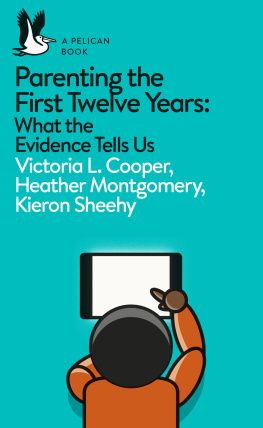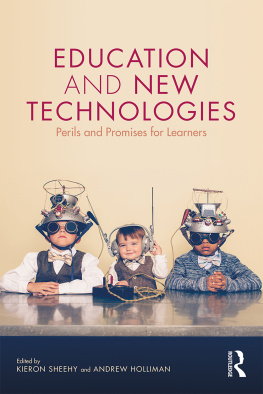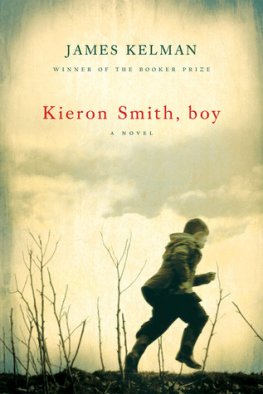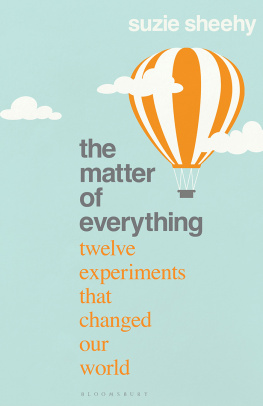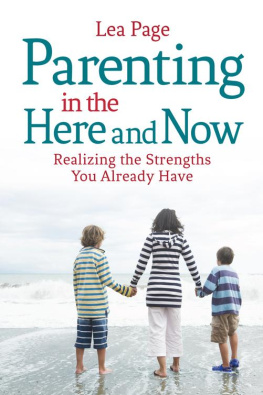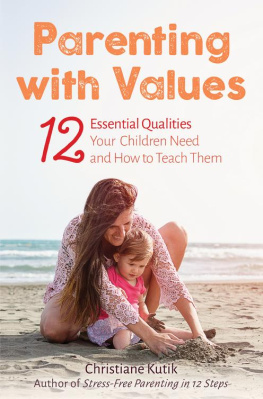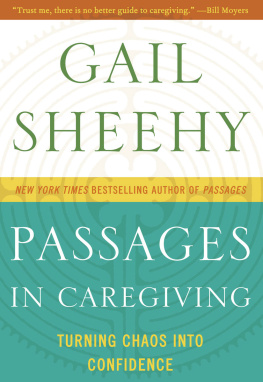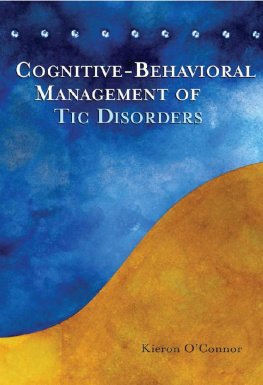Kieron Sheehy - Parenting the first twelve years : what the evidence tells us
Here you can read online Kieron Sheehy - Parenting the first twelve years : what the evidence tells us full text of the book (entire story) in english for free. Download pdf and epub, get meaning, cover and reviews about this ebook. year: 2018, genre: Children. Description of the work, (preface) as well as reviews are available. Best literature library LitArk.com created for fans of good reading and offers a wide selection of genres:
Romance novel
Science fiction
Adventure
Detective
Science
History
Home and family
Prose
Art
Politics
Computer
Non-fiction
Religion
Business
Children
Humor
Choose a favorite category and find really read worthwhile books. Enjoy immersion in the world of imagination, feel the emotions of the characters or learn something new for yourself, make an fascinating discovery.
- Book:Parenting the first twelve years : what the evidence tells us
- Author:
- Genre:
- Year:2018
- Rating:5 / 5
- Favourites:Add to favourites
- Your mark:
- 100
- 1
- 2
- 3
- 4
- 5
Parenting the first twelve years : what the evidence tells us: summary, description and annotation
We offer to read an annotation, description, summary or preface (depends on what the author of the book "Parenting the first twelve years : what the evidence tells us" wrote himself). If you haven't found the necessary information about the book — write in the comments, we will try to find it.
Kieron Sheehy: author's other books
Who wrote Parenting the first twelve years : what the evidence tells us? Find out the surname, the name of the author of the book and a list of all author's works by series.
Parenting the first twelve years : what the evidence tells us — read online for free the complete book (whole text) full work
Below is the text of the book, divided by pages. System saving the place of the last page read, allows you to conveniently read the book "Parenting the first twelve years : what the evidence tells us" online for free, without having to search again every time where you left off. Put a bookmark, and you can go to the page where you finished reading at any time.
Font size:
Interval:
Bookmark:
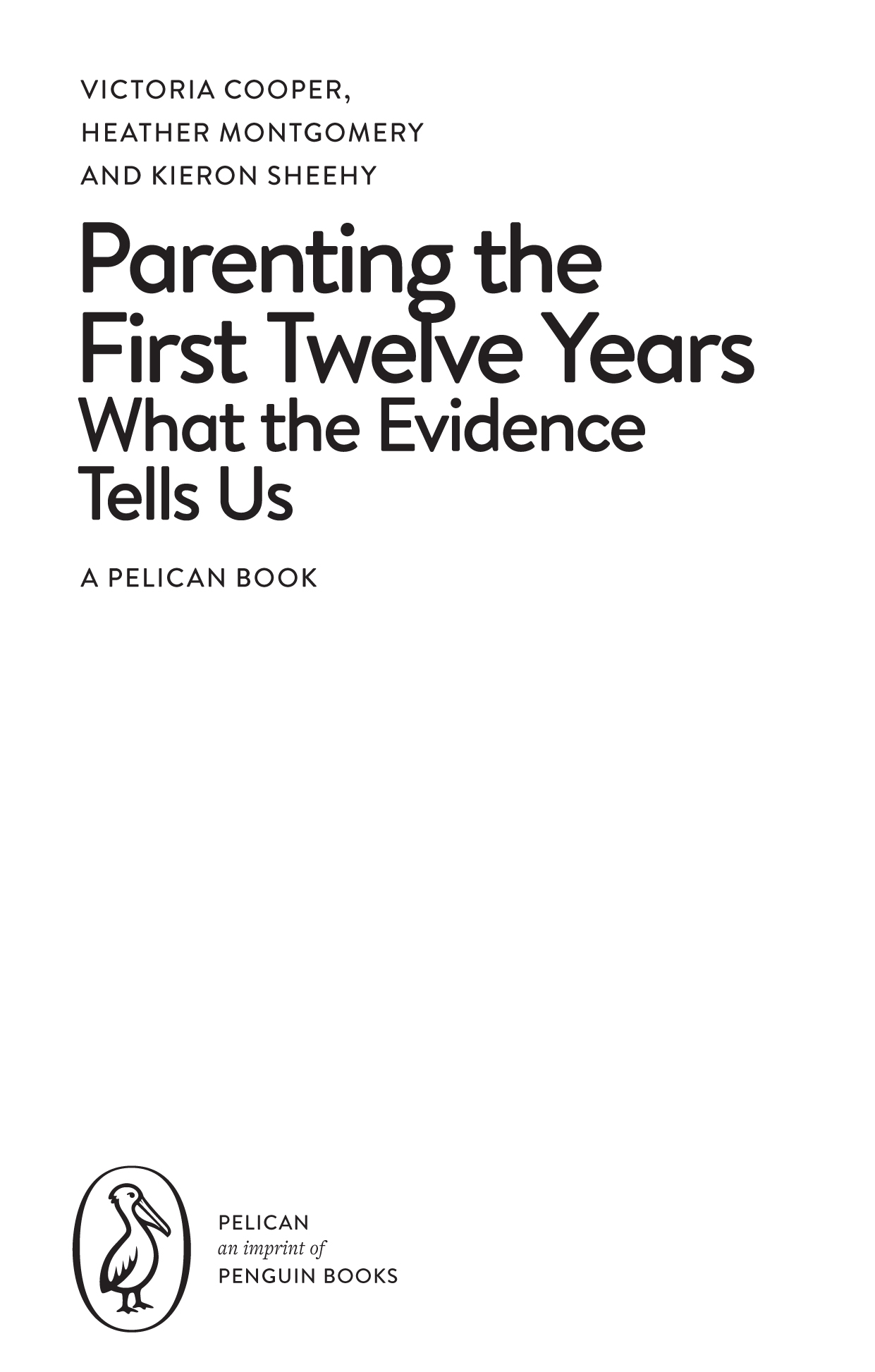

- Economics: The Users Guide
Ha-Joon Chang - Human Evolution
Robin Dunbar - Revolutionary Russia, 18911991
Orlando Figes - The Domesticated Brain
Bruce Hood - Greek and Roman Political Ideas
Melissa Lane - Classical Literature
Richard Jenkyns - Who Governs Britain?
Anthony King - How to See the World
Nicholas Mirzoeff - The Meaning of Science
Tim Lewens - Social Class in the 21st Century
Mike Savage - The European Union: A Citizens Guide
Chris Bickerton - The Caliphate
Hugh Kennedy - Islam: The Essentials
Tariq Ramadan - Basic Income: And How We Can Make It Happen
Guy Standing - Think Like an Anthropologist
Matthew Engelke - Hermeneutics: Facts and Interpretation in the Age of Information
John D. Caputo - Being Ecological
Timothy Morton - Object-Oriented Ontology: A New Theory of Everything
Graham Harman - Marx and Marxism
Gregory Claeys - The Human Planet: How We Created the Anthropocene
Simon L. Lewis and Mark A. Maslin
UK | USA | Canada | Ireland | Australia
India | New Zealand | South Africa
Penguin Books is part of the Penguin Random House group of companies whose addresses can be found at global.penguinrandomhouse.com.

First published in 2018
Text copyright Victoria Cooper, Heather Montgomery, Kieron Sheehy, 2018
The moral rights of the authors have been asserted
Cover design by Matthew Young
Book design by Matthew Young
ISBN: 978-0-241-27051-6
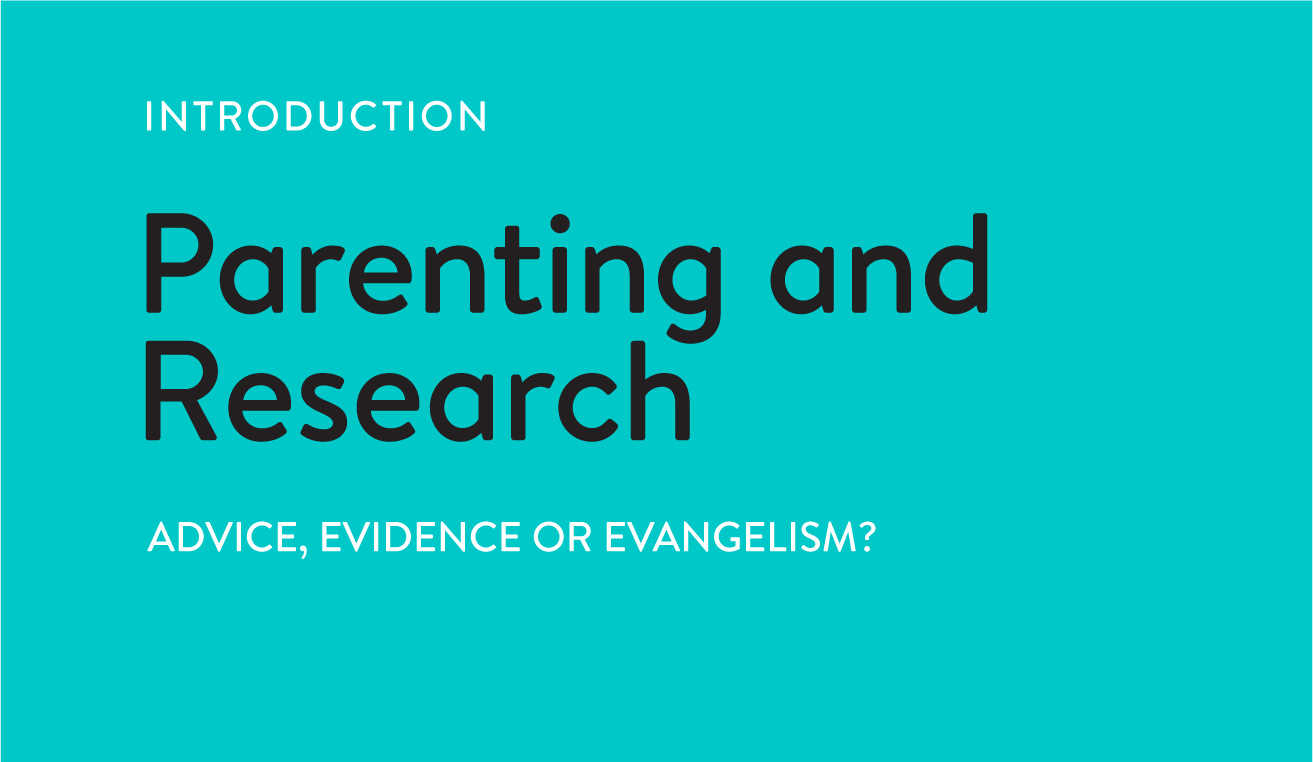
on parenting different children, Andrew Solomon wrote that parenting is no sport for perfectionists, yet at the same time it is something that the vast majority of parents struggle and strive to do as well as they can. So often parents are told they are failing, that their children arent right in some way too fat, too thin, too self-confident, too lacking in self-esteem, too connected with the digital, as opposed to the real world that it can seem very much as if parenting is a competitive sport suitable only for perfectionists and that those who fall short in some way (or any way) must be held up to account and general opprobrium.
This book is neither a parenting manual nor does it set out the right way to bring up children or to spell out the dire consequences of not doing so properly. It is not a polemic, nor does it promote any particular philosophy or way of child-rearing. Rather, it aims to provide a pathway through the proliferating amount of literature published in recent years on parenting: probing and questioning some of the taken for granted assumptions about how to raise children. It is a book written not only for parents but also for researchers, professionals and policy-makers engaged with childhood. While the phrase it takes a village to raise a child has become a clich, it remains true that many people have a stake in how children are parented and want to know what researchers and academics have discovered about doing so.
While parents have always had an (obvious) interest in their childrens lives, since the late 1980s there has been an upsurge in interest in childrens experiences and understandings from both policy-makers and academics. Childhood Studies has become an established and still expanding subject in universities throughout the world and, while there has been an interest in improving childrens welfare for many centuries, recent interventions in childrens lives have been based on taking on board childrens own views and on understanding their needs above and beyond physical survival. Yet this research is not always well disseminated and does not always reach parents or practitioners: sometimes it is full of either medical or sociological terms which make little sense to those outside the medical profession or academia, or else it is only available in academic journals which few people have access to outside universities. There can also seem so much of it as to be overwhelming. What we have tried to do in this book therefore is to identify, summarize and sometimes critique the academic work out there, explaining its significance and implications but also pointing out some limitations. It is not exhaustive: there has been so much academic work done in the last forty years on childhood and parenting that it couldnt possibly be, but it does try to be representative, using examples from research studies which illuminate particular aspects of childrens lives and which present broad themes and concepts developed within studies of parenting and childhood.
The authors of this book come from a variety of disciplines: we have backgrounds in education, psychology and social anthropology, but have also written about and taught sociology, history and development studies. The book therefore has a largely sociocultural focus and concentrates on the social landscape of parenting. While it touches on research in medicine, genetics and neuroscience, the majority of the evidence we examine is from the social sciences and is largely qualitative rather than quantitative. There are of course huge debates about the relative merits of each type of research, as indeed there are about how scientific social science research really is, but one of the greatest strengths of qualitative research is its ability to look in depth at what sociologists call the lived experiences of individual people and to place them in their social, cultural and political context. This is not to claim that genetics are unimportant or that we believe entirely in nurture rather than nature. Indeed, the reason we have discussed neuroscience or genetics in places is to show the interaction between nature and nurture (or, as They found that adopted children were significantly more likely to develop schizophrenia if their biological parents suffered from it, even when their adopted parents did not. Such a result strongly suggests that schizophrenia has a largely genetic basis. And yet this is not the full picture (as the researchers acknowledge). It is very hard to conduct studies on adopted children and isolate one factor: numerous other experiences such as their experiences before adoption, their general health or that of their parents or the number of other children in their adopted families, have all been shown to have an influence on a childs susceptibility to schizophrenia. Further studies have also revealed that children with a biological predisposition to schizophrenia are more likely to show symptoms of the disorder when brought up in certain environments rather than others, meaning that disentangling these various factors from each other is not always possible. More broadly, such findings emphasize the need for an understanding which places the child and her experiences at the centre of analysis rather than attempting to discover one biological or medical key which unlocks the entire mystery of why a child develops as she does.
Font size:
Interval:
Bookmark:
Similar books «Parenting the first twelve years : what the evidence tells us»
Look at similar books to Parenting the first twelve years : what the evidence tells us. We have selected literature similar in name and meaning in the hope of providing readers with more options to find new, interesting, not yet read works.
Discussion, reviews of the book Parenting the first twelve years : what the evidence tells us and just readers' own opinions. Leave your comments, write what you think about the work, its meaning or the main characters. Specify what exactly you liked and what you didn't like, and why you think so.

